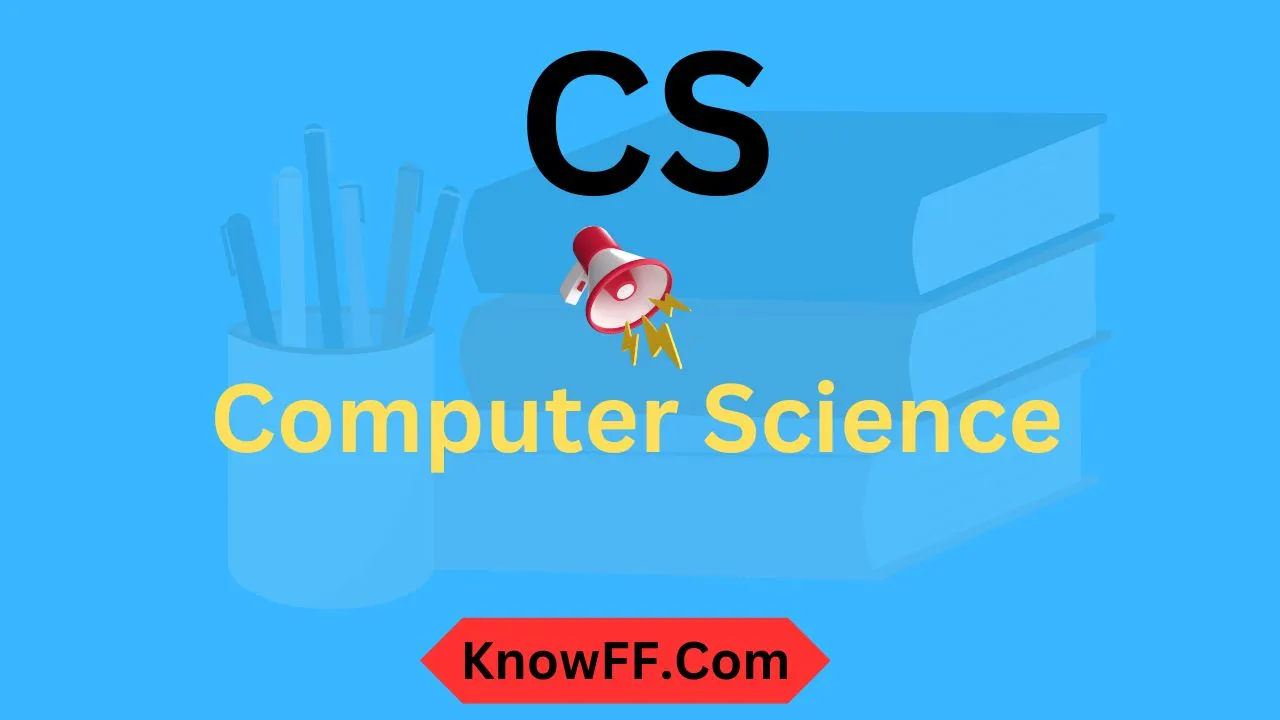In the ever-evolving world of digital communication, abbreviations and acronyms have become an essential part of conversations.
One such abbreviation that often appears in text messages, social media, and professional discussions is CS.
People frequently search for its meaning because it can have multiple interpretations depending on the context in which it is used.
Whether you’re chatting with friends, discussing academic subjects, or exploring technical fields, understanding what CS means can enhance clarity in conversations.
This article provides a detailed explanation of the term, its background, different usages, common misconceptions, and how to respond when encountering it in various contexts.
Meaning & Definition
The abbreviation CS can stand for different things depending on where and how it is used. Some of the most common meanings include:
- Computer Science – A widely known definition referring to the study of computers and computational systems.
- Customer Service – Often used in business conversations and online platforms referring to assistance provided to customers.
- Counter-Strike – A popular multiplayer video game.
- Case Study – Frequently used in academic and research contexts.
- Clubhouse Sound – A term used in music and DJ communities.
Background
The origin of CS as an abbreviation varies by field. In academic and professional settings, CS has been commonly associated with Computer Science since the mid-20th century. Meanwhile, in customer-oriented industries, Customer Service (CS) emerged as a crucial element of business interactions. The gaming world recognizes CS as Counter-Strike, a franchise that gained popularity in the early 2000s. Over time, the abbreviation has found its way into informal communication, leading to multiple meanings based on user preference and discussion topic.
Usage in Different Contexts
Casual Chat and Social Media
In informal conversations, CS may not always refer to technical or professional meanings. It is often used in:
- Text messages – “I need to call CS about my order.”
- Instagram captions – “Weekend vibes at CS clubhouse.”
- TikTok comments – “CS game nights are the best!”
- WhatsApp chats – “Studying CS is tough, but worth it.”
Professional and Technical Fields
- Business: Customer service representatives and employees often refer to their department as CS.
- Education: Computer Science students and professors frequently use CS to denote their field of study.
- Gaming: Players of Counter-Strike recognize CS as the shorthand for their favorite game.
- Research & Analysis: Scholars use CS when discussing case studies in various subjects.
Meaning in Chat, WhatsApp, Instagram, and TikTok
Social media platforms and messaging apps are filled with abbreviations, and CS appears in different forms, such as:
- “I’m working in CS now” (Customer Service)
- “CS exam is next week” (Computer Science)
- “Streaming CS tonight!” (Counter-Strike)
- “This CS beats so well!” (Clubhouse Sound)
Meaning in Physics, Medical, and Aircraft Terminology
Apart from its casual and professional use, CS has specific meanings in specialized fields:
- Physics: CS may refer to Cross-Section, a concept used in particle physics.
- Medical Field: In healthcare, CS stands for Cesarean Section (C-Section), a surgical procedure for childbirth.
- Aircraft Industry: Pilots and engineers use CS to refer to Control Surface, which relates to aircraft maneuverability.
Common Misconceptions
Since CS has multiple meanings, misunderstandings can arise. Some common misconceptions include:
- Confusing CS with SC – Some people mistake CS for SC, which may stand for “Snapchat” or “Security Clearance.”
- Assuming CS always means Customer Service – In technical discussions, CS is more likely to mean Computer Science.
- Mixing CS with Counter-Strike in professional settings – If someone says, “CS skills are important,” they likely mean Computer Science rather than gaming.
Similar Terms & Alternatives
If you’re looking for alternatives to CS, consider:
- CompSci – Commonly used as a shorthand for Computer Science.
- CustServ – An alternative term for Customer Service.
- CX – Another abbreviation for Customer Experience.
- CaseAnalysis – Can replace Case Study in formal documents.
How to Respond to CS in Texts
When you encounter CS, understanding the context is crucial. Here are some ways to respond:
- If it means Computer Science: “Oh, are you a CS student? That’s great!”
- If it means Customer Service: “I had a great CS experience at that store.”
- If it means Counter-Strike: “I’d love to join your CS match tonight!”
Differences from Similar Words
- CS vs. CX: CX is used mainly for customer experience, while CS can mean customer service or other things.
- CS vs. AI: AI (Artificial Intelligence) is a subfield of Computer Science.
- CS vs. UX: UX (User Experience) focuses on design, whereas CS in tech contexts refers to Computer Science.
Relevance in Online Conversations & Dating Apps
In dating apps and social media, CS can occasionally appear in profiles or chats. Users might mention CS as a career field (e.g., “I work in CS”) or a hobby (“Big CS fan here!”). Understanding what it means can help keep the conversation smooth and engaging.
Frequently Asked Questions (FAQs)
What does CS stand for in texting?
CS commonly means Customer Service, Computer Science, or Counter-Strike in texting.
How do I know which CS meaning applies?
The context of the conversation determines whether CS refers to a subject, job, or game.
Is CS only used in technical fields?
No, CS is also widely used in gaming, customer service, and social media discussions.
Does CS mean Case Study?
Yes, in academic settings, CS can stand for Case Study.
Can CS mean something inappropriate?
Typically, CS has neutral meanings, but always check the context to be sure.
How do I respond when someone texts ‘CS’?
Ask for clarification if unsure, or reply based on context, such as “Are you studying CS?” or “Do you need CS help?”
Is CS a common acronym in everyday text?
Yes, CS is frequently used in work, education, and casual text conversations.
Conclusion
The abbreviation CS carries multiple meanings based on context. Whether discussing Computer Science, Customer Service, Counter-Strike, Case Studies, or Clubhouse Sound, understanding CS ensures clear communication in various fields.
By recognizing the different uses, avoiding misconceptions, and responding appropriately, you can navigate conversations more effectively.











